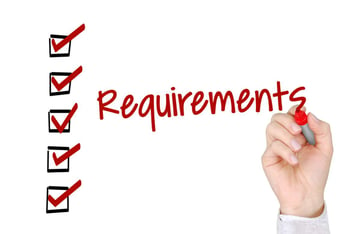The Ultimate Guide to Managing Virtual Assistants for Real Estate
Updated March 13, 2023
Virtual assistants are remote team members who can offer your company administrative support. A team of VAs can perform a wide range of tasks providing many benefits to real estate businesses. They are a cost-effective alternative to full-time staff due to lower pay rates and fewer traditional payroll requirements.
So, what's the best way for real estate agents, brokers, commercial real estate investors, and other industry professionals to manage a team of virtual assistants? Keep reading to learn more about what virtual contractors can do and how to train and manage your team.
What Are the Most Common Tasks Performed by Virtual Assistants?
Real estate professionals find virtual talent to take on various tasks based on your company's needs. Many virtual assistants perform administrative tasks that help other team members focus on growing the business. However, the right remote assistants can also perform other duties, such as social media marketing and management, graphic design, bookkeeping, and real-estate-specific tasks.
A well-trained VA can handle your appointments, travel arrangements, file storage, data entry, and more. In addition, some specialized virtual assistants can help you manage company finances by making budgets and tracking expenses.
For real estate companies, virtual team members can also serve as listing agents, inside sales help, or marketing assistants.
How to Manage and Train Your Remote Team Members
Finding one VA is excellent. However, adding multiple virtual assistants to your team is even better! The right talent can reduce your workload and handle multiple daily activities, giving you more time to work on bigger projects to grow your business.

When trained and managed effectively, VAs can be very productive and efficient. Here are a few best practices to follow so you can help your remote team members be as productive as possible.
Train Your VAs Well
When choosing a virtual assistant, discussing your expectations in detail at the start of the contractor relationship is best. Having a clear idea about their roles and responsibilities will help them do their job better.
Training your virtual assistant is one of the most crucial ways to ensure the process goes smoothly for you and your team. As with your in-house employees, virtual assistants can fall short of your expectations without proper onboarding and training.
However, well-trained VAs know exactly what to do and how to complete tasks. As a result, they ramp up quickly to add efficiency to your business right away! Although onboarding and training will require time and effort, incorporating a training plan into your virtual assistant team management allows you to save time and avoid mistakes.
Maintain Routine, Clear Communications
New virtual assistant team members may have a lot of questions about their duties. Therefore, it is essential to communicate regularly, check in routinely, and track their progress consistently.
Provide an easy way for your real estate VA to get in touch with you. You can use email as well as other communication tools (like instant messaging apps) to facilitate easy communication. Building a habit of routine check-ins and accessibility will help you build a strong working relationship with your VA, answer questions promptly, and resolve issues as they arise while they are still getting used to their responsibilities.
Identify and Use Their Strengths
The right VAs come with the skills you need, but they might also have additional strengths (or weaknesses) you uncover as they get more involved in their roles.
For a mutually beneficial working relationship, take some time to identify their existing skill levels, their strengths, experience, and weaknesses. Then, provide them with tasks that are aligned with their strengths.
In addition, support ongoing training and learning for your VA team so they can work on their weaknesses. When choosing virtual team members through VPM Solutions, you and your team have access to free ongoing training courses that keep your VAs well-informed and up-to-date on industry-related topics.
Our VPM Academy provides a way for virtual assistants for real estate to earn certifications that help them continue to work well for your real estate business!
Understand and Accept Cultural Differences
A real estate virtual assistant may work for you while they live and work in any country. Depending on their home country, there may be a difference in culture, language, and social norms.
Take the time to understand these differences so you can communicate with them effectively. Ultimately, this will help you build a stronger relationship with your remote team members so you can continue to work together comfortably for longer.

Provide Regular Feedback
Like anyone else, virtual assistants need regular feedback to understand what went right and where their efforts fell short. Handle setbacks with tact and provide constructive feedback. When dealing with concerns, missed deadlines, or unsatisfactory work, it is best to keep discussions professional.
Provide your remote assistants with detailed feedback so they understand how to correct mistakes. In addition, when they do something right, give them positive feedback to encourage them.
Track Their Efforts to Establish Trust
A well-trained virtual assistant for a real estate agent can be trusted to complete their tasks well. However, verifying their work and tracking their efforts and time is also necessary to help them be more effective (and build trust).
To establish accountability, provide your remote contractors with detailed instructions to do the job, then trust them to do it. Again, check in with them routinely to ensure they aren't facing any issues with the task. Time tracking and project management tools can help you ensure tasks are completed on time and time is used efficiently.
Find the Best Virtual Assistant for Real Estate to Build Your Team
If you are looking for well-trained, efficient virtual team members for your business, VPM Solutions can help. While you might start with one VA to add to your workforce, many real estate professionals add multiple virtual assistants to their teams through our platform — and we've made it easy to manage remote teams!
Our Company Accounts feature allows your management team to find and pay VAs, review time sheets, track projects, and more — without sharing a login or requiring multiple accounts to access your company dashboard. Schedule a Demo to learn more about Company Accounts and finding the real estate virtual assistant you need through VPM Solutions!





















